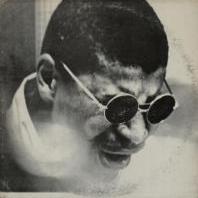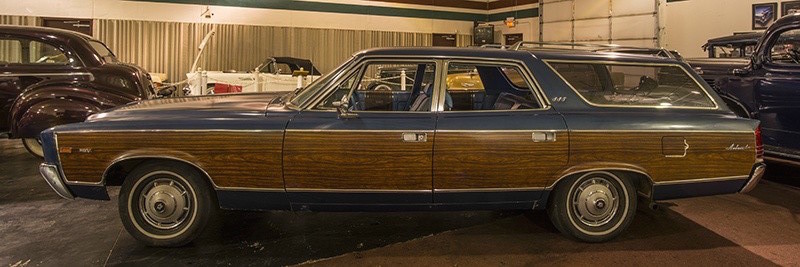-
Posts
5,274 -
Joined
-
Last visited
Content Type
Profiles
Forums
Events
Blogs
Everything posted by Late
-
Up for refreshed reading, and wondering what you all thought of these recordings:
-
Herman P. Blount
-
Received a letter (actual pen on paper!) from Cuscuna stating that Here to Stay and The Big Beat would eventually make it out as RVG's. 2005, maybe? McCoy Tyner's Expansions is another title in dire need of a sonic upgrade. Oh, but this is the Connoisseur thread ... Add my vote for Contours, too. My favorite Rivers session, and the Mosaic remastering is brittle.
-

Sob - selling my jazz CD collection
Late replied to sashimi-jazz's topic in Offering and Looking For...
Truth! -
I think I like Mat Maneri best in Joe Morris's quartet. Violin (or viola) and guitar have come some distance since Stephane and Django. Both duos are brilliant.
-
Dis, while I can't help you with a website, try this this search. You'll have to sort through quite a few Mancini and show tune albums, but there are still good albums to be had. If you like Rogers' music, I strongly recommend Dick Collins on trumpet, and his RCA album entitled King Richard the Swinghearted. Also, if you can find it, Collins' Dick Collins and the Runaway Herd is even better. Collins sounds a lot like Chet Baker, and even before Baker sounded like Baker!
-
Brownie, I agree. I think a duo album (Bley/Peacock) would have been brilliant. But, I think the album came to fruition because it was Koglmann's idea to play an all-Annette track list! For a few more photos of Annette, and Bley's recordings of her compositions, check out this site.
-
Have you guys checked out Franz Koglmann's Between the Lines label? Some very interesting music there. A number of these are available here. These babies generally sell for $17, but through the 9th (at Tower, and perhaps not much help for our EU friends) are $12.74. Also'd like to know what you all think of Koglmann in general, Thom Jurek's remarks notwithstanding. Also, though I'm sure many here at The Comical Rodent Thread have visited this site before, don't forget to check out The European Free Improvisation Homepage. Updated every so often, it's an invaluable resource for this thread's type of cheese-eater. (I think I'll take a cambozola.)
-
... also, if you like L'Heure Bleue, make sure to check out Make Believe and An Affair with Strauss here. Some absolutely gorgeous playing on both discs.
-
I know what you mean about the finger, Tony. Here's what The Penguin Guide says about those same four notes: "The guitarist's four-note encodement of the opening 'Leopard Lady' is the most obvious insight yet into Koglmann's method." Wait a minute. Obvious? What's obvious about that? I can't figure it out (except for it still being annoying). It does contain the same interval progression as the melody for the television show "Jeopardy," however. Maybe Koglmann's a fan of Alex Trebek? Maybe we have a sly, inside joke reference to Americana? Hmmm, I might like it more if that's the case.
-
Gary, did you ever end up picking up this title? I just now finished listening to this album, thought about starting a thread on Koglmann ... but thought I'd better do a search first. And, voila! One Koglmann thread already in action, albeit from June. This is a fine album, and I'd recommend it easily, with only one reservation. Burkhard Stangl's guitar solos drive me insane. I've always had a difficult time warming to the electric guitar, and these solos (though there aren't many) are nearly the epitome of what I dislike in guitar playing (e.g. rock-ish distortion that moves wildly out of a song's original context). That said, Stangl's accompaniment is another horse — fine, fine playing there. I do like forward-looking guitar playing (Joe Morris, Nels Cline), but Stangl just seems on the outside of this album's character. Koglmann's playing, on the other hand, is simply gorgeous, as is Tony Coe's and Misha Mengelberg's. The duos (Koglmann/Mengelberg) cast Koglmann in a very Chet Baker-esque light on flugelhorn. If you're not bothered by the kind of guitar playing that I described above, you're likely to love this disc. As a matter of fact, I'm sure I'll gradually get over my initial hang-up with Stangl on this, and be calling this album "a classic" in a couple of months. Also, for anyone in the U.S. who has their eyes on this disc, purchase the original version (hatART 6093) from Cadence. It's cheaper ($11, as opposed to $16), and has the same remastering as the newer version. Only the packaging is different (different cover art, and in a jewel case instead of a paper sleeve). What other Koglmann titles do you guys like? I'm thinking about picking up A White Line next. Bring on the recommendations!
-
A heads-up: Hat just recently updated their site. No new titles in their "pending" section, but the last and final batch of their mid-price series has been posted. Time to jump on the Braxton Dortmund set (and Bley's Annette) if you haven't already! Just received 9 hats in the mail this week. Time to brew more coffee and soak them in. (Spun Taylor's Garden, Part Two first. Beautiful — at times even more moving than Silent Tongues.)
-
... can't wait until April. I actually never thought I'd have a chance to hear Wayne live. I wonder how touring wears on him (if at all, apparently) at his age now.
-
Fans of this film — don't forget to rent Woody Allen's Stardust Memories, one of the best homages to 8 1/2 around, and damn funny, too.
-
Wow, Mehldau's going to be all over the place this spring! I'm going to be hearing him and Shorter a couple days before (or after) you, David. Up here, they're going to be performing on separate days, however. Really looking forward to hearing both, live, for the first time. In anticipation, I've been spinning Mehldau's Village Vanguard disc. Nice stuff, even if I don't know exactly what to think of it yet. I kind of wish I hadn't read the liners before listening, but that's another story ... How old is Wayne Shorter? He looks great for his age.
-
Can't good art be both fun and solemn? Joyous and conflicted? That kind of creative tension is what makes it so great. I don't think we're dressing up Louis Armstrong here. At any rate, I think that all written words eventually stand in deference to the music itself. Maybe it's best just to listen and be moved by what we hear.
-
Just wanted to clarify — I don't see Armstrong as tragic. That's why I wrote "pervading hope." In the end, that's how I understand his music: hopeful, and, yes, filled with a profound sense of joy.
-
Montg, I know what you mean. That "low stock" is a curious animal. I guess I lucked it this time. Big Al, I'm sending positive vibrations ... the parcel will come in. Of course, that's only if you ordered the Cecil Taylor.
-
That picture is the word, which just may be closer to the truth than we'll ever be allowed access to. I don't know too much about Armstrong's personal life, but behind all that entertainment value was not so much a trumpet player but an artist, and one that was likely as perplexed about the world — with all its ambiguities and double standards — as any other commensurate figure from the creative arts. There were reasons Armstrong needed his tea, and it was probably more than to just take the edge off. You hear him sing "Shine" as far back as the early 30's, and the underlying gestures of doubt, exhaustion, and a pervading hope are already there.
-
Dang! One day. Just got Cecil in my mailbox this afternoon. Cracked jewel case, but otherwise a spankin' new cd. Will enjoy tonight.
-
Really? Damn. I just placed an order with Cadence last week — not for the VAO disc, which I have, but for other hatOLOGY discs that, if memory serves, hathut lists (at least for some) as "out-of-print." I e-mailed Cadence first, and "The Crew" there said that all of them ("Phonolith," "Dissonant Characters," and "Something to Live For") were available. I also picked up some of the hat 6000 series. I'll report back in the hat thread when the package comes in.
-
Peter, if you can order from the U.S., Cadence has this disc on sale for $8.50 here.
-
Clifford Robinson:
_forumlogo.png.a607ef20a6e0c299ab2aa6443aa1f32e.png)
